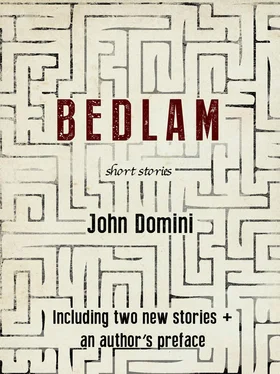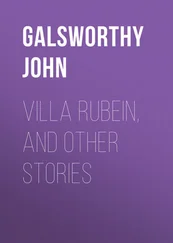I understood the argument. I’d often wondered how the same me could remember, though vaguely, so many types of experience. My last physical appearance, for example, was joyous, crackling, with everything I wanted given me at once. Even those dull and morbid books were the gratification of some rainy afternoon’s morbid state of mind. I died, that last time, on the night of high school graduation, in some devil-may-care catastrophe that I can’t now recall, something like a motorcycle accident. Direct, vicious living and dying — wonderful! Yet there were also darker hours, among my recollections. I had also once starved to death, my joints atrophied so I couldn’t move, following a lifetime wasted as a household spider.
“Yes, Ul ‘Lyu,” I repeated.
“But then besides, Baby, besides. It gets so complicated, ooo. How is it ever all worked out?”
And this argument, too, I’d heard before. Ul ‘Lyu again was quicker getting to the point than I’d expected, but the essential problem of a moral principle certainly is easy enough to grasp. What are the gradations of morality? What sins and good deeds, when tabulated together, translate into the blue housefly which dies of poison? What sort of good guy or bad guy becomes the reptile which suns itself brainlessly, eating flies of another color, till its cold heart stops? What moral formula will produce one particular casting out of the million million human types? These questions, this one question, is common here. But never once had I heard anyone talk it over the way Ul ‘Lyu could.
“Baby, please try to remember when you were a spider. Was it summer or winter when you died?”
“Winter.”
“Anything else? Please tell me.”
“All I can remember is stones, Ul ‘Lyu.” And in those few seconds of talk alone, the memory had devastated me with its sadness. “A winter of stones.”
“Okay. Okay I think I know what you were punished for. I think you might have been one of those men who rape little girls.”
I looked back up at her, startled.
“See the stones around you, Baby”—how could she use that nickname, talking about the things she was? — “the stones are so much bigger than you. And feel the sticky dirt of your web, sticky and oozing out from a hole under your belly….”
She frightened me. Right from these first flights of ours, Ul ‘Lyu could go on and on about the most hideous sufferings, about pain that would have my elbows flinching beneath her just to hear it. Yet she’d describe it all in that sweet-tempered voice of hers, as if it were cocktails on the lawn. I couldn’t take my eyes off her now, as she flew along talking about the most hateful life I could recall living. At the edge of my vision there passed the familiar gray stalls from which were handed out the physical assignments on my world. Yet it was Ul ‘Lyu who held me, who held my hands and eyes both. She frightened me, but she could talk . Every question she raised became a romp of meaning and sensuality.
“But now all your joints go stiff, Baby. Stiff. Think of eight steel rods growing out from your ribs.” And I had to think of these rods growing so heavy I could no longer stand, then so heavy I could no longer hold myself on all fours. “You are paralyzed as a spider, Baby, but still you inside.” So that finally as the dying insect I became in fact the little girl I’d formerly raped, trapped in the stiff hold of the hairy molester. “Think, Baby, think of the girl trapped under the enlarged, stiff….”
Yet even as she spoke these horrors, in the throes of her imagining, she performed a trick I always loved. Over the round surface of her body she rotated her face, until soon it came to rest above mine, very close. She could do this even when we flew “forwards”—that is, in the direction I was facing. She didn’t need to see where she was going.
“Ul ‘Lyu!” I had to shout. “There are so many possibilities with you around!” And then the rhyme: “You jewel -you, Ul ‘Lyu!”
She grinned, her face snug between my two buried wrists.
My own guess — my own way of avoiding the truth — was that her freewheeling attitude about the meanings and monsters of my physical life had something to do with coming, as she did, from a dead world. In this she was, after all, different from me. Truly dead worlds were the one important piece of information left out of those sober-sided books I’d read the last time I was a teenager. Other planets and moons had their dead too. And from time to time, after some vast cataclysm, a faraway place may cease to be. A sun may explode; there are wars. An infinite choice of destructions exists, so Ul ‘Lyu told me. Then after that apocalypse, the now heavily-populated realm of the dead would begin, naturally, to wander. During the lifetime of their particular physical world, those dead had of course remained “nearby,” if only in the way that on a clear night the stars are nearby.
“But after your point of reference goes away,” Ul’Lyu told me, “you’re free. You can go anywhere.”
Beneath her, flying beneath her, I wondered. Free . Then was that why I felt…? And I wondered further. Just how, exactly, did I feel, just how was I beginning to feel, about Ul ‘Lyu?
“But this place of yours, Baby, well. It’s different. It’s like a fog inside a box, isn’t it? And then you have those little gray booths at one side— ooo ! Oh- oh -ooo!”
I had turned my wrists over, inside her. She always cooed and yelled this way while I inserted my hands deep enough for another dangling flight. And this time I was deliberately tickling her, making her scream, to distract us both from the smoky sameness of my slow world.
“Just checking the suction, Ul ‘Lyu,” I called up.
And I turned my wrists back and forth till the muscles grew hot. Ul’Lyu warbled like a piano. The rest of that flight, at least, passed in conversation about safer subjects.
But the trick of course didn’t work forever. No. Compared to Ul ‘Lyu I was a cripple with tricks. There came a later flight. Then despite hours of tickling, my persistent bird, my singleminded passenger pigeon, you wouldn’t be distracted.
“Your system, Baby,” she said then, “the amazing thing about it is that it takes so much time.”
And there she had touched the hard heart of the matter. I suppose I knew she would sooner or later. The great problem of living between lives as I am is simply how leadenly and blankly it stretches on. We have no way of telling the time here, but we wait a long time. And yes, “we,” yes there are others here, a group as good or bad as any, I suppose. But the company’s no help, in the last analysis. We all share nothing but the vacant density of prolonged anticipation. And “down” there, in the physical realm, every act holds meaning. Spider or slap-happy teenager, every living thing moves by significant steps to a significant end. Whereas “up” here all meaning turns to smoke. We wait. I do not know what goes on in those gray stalls at the edge of our depot, but I do know that we ghosts have fought like murderers in order to get an assignment that wasn’t even ours to begin with. Since our assignments aren’t written down but instead simply told to us, since therefore we hear our names only as they echo through the gloom, confusion can arise. I myself once actually tore out the legs of another here, when I’d thought it was my name the Powers had called. I’d torn out the other’s legs and left him there, like something out of a sadistic cartoon. But that assignment turned out to be in fact for him; the name I’d heard was his. I was told to wait.
“And were you punished,” Ul ‘Lyu asked when I told her about the fight, “during your next lifetime?”
Читать дальше












